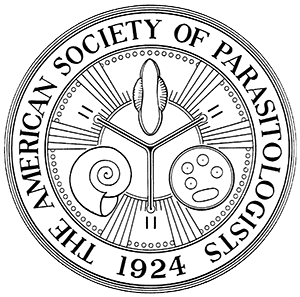Location
The American Society of Parasitologists (ASP) is a diverse group of over 800 scientists from industry, government, and academia who are interested in the study and teaching of Parasitology. Founded in 1924, ASP members have contributed not only to the development of parasitology as a discipline, but also to primary research in systematics, medicine, molecular biology, immunology, physiology, ecology, biochemistry, behavior, and more.
ASP Mission Statement
The Mission of the American Society of Parasitologists is to constantly improve our understanding of parasites, parasitic diseases, and parasitism on a global basis and to disseminate this knowledge worldwide. We achieve this Mission by providing opportunities for all scientists to publish their original findings in the Society's Journal, and to present and discuss new information at the Society's annual meeting, in the ASP's Newsletter, through the ASP's Public Advocacy Network, or in discussion groups on the internet. We educate parasitologists via our Web Page and other educational media produced by the Society. In order to meet our goal to remain a strong focus of scientific exchange across the broad discipline of parasitology, we must actively seek and support new research areas and new members and retain current members, as well as encourage and support continued existence of highly specialized areas of research in parasitology.
ASP Vision Statement
Recognizing that parasitism is the most common form of existence, and that parasites and the diseases they can cause affect the health, development, and evolution of free-living animals and plants, the American Society of Parasitologists seeks to foster the advancement of knowledge in all areas of parasitism. Recognizing the value of this knowledge and the responsibility given to the ASP as a result of understanding parasitism, the ASP seeks to disseminate this knowledge to all who have need of it through our outreach programs with educational systems, governmental, public, and private agencies, as well as during our scientific meetings. To do this, ASP is dedicated to the perpetuation of all areas of the discipline that is parasitology.
Members:
Resources
Displaying 1 - 1 of 1Influence of Environmental Variables on Baylisascaris procyonis Infection in Raccoons
Baylisascaris procyonis is a zoonotic nematode commonly found in raccoons (Procyon lotor). Human-altered landscapes can support dense populations of raccoons, increasing the potential for interaction between humans and these animals. We used raccoon feces provided by licensed fur trappers to investigate environmental variables that influence prevalence of B. procyonis at 2 sites in Wisconsin. Trappers submitted raccoon feces to us, along with information on sex, age (juvenile and adult), and approximate trap location for each animal.


